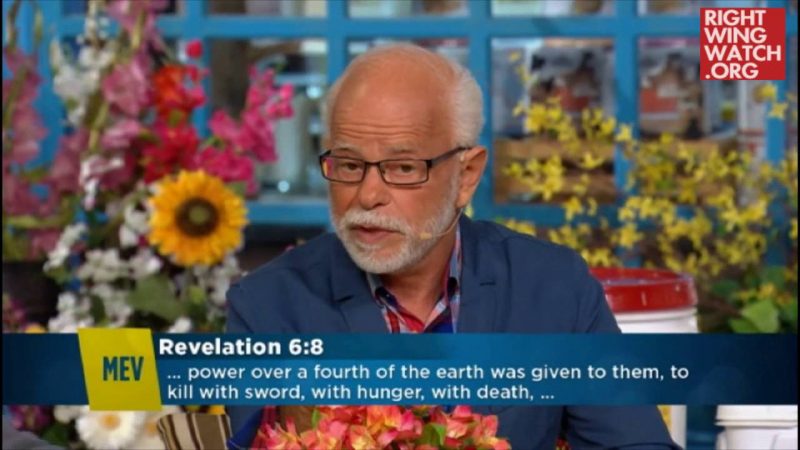Former Ohio Secretary of State Ken Blackwell, now with the Family Research Council, said that the House GOP’s massive food stamp cuts that could remove around 4 million people from the program next year was an act of Christian compassion.
While many churches and Christians organizations denounced the move, Blackwell told the Christian Post that there was “nothing more Christian” than kicking low-income families off food stamps. He referred to food aid as part of the “plantation of big government” and said that churches and charitable organization will replace such government assistance.
Of course, the conservative news outlet also quoted Rev. Gary Cook of Bread for the World, who criticized the Republican plan and noted that the work of churches “is worth $4 billion dollars annually, which is essentially equal to the annual cut Congress is proposing in food stamps.”
Rev. Gary Cook, the Director of Church Relations at Christian anti-hunger advocacy group, Bread for the World, has told The Christian Post that he is worried that the latest cuts could further marginalize the most vulnerable, rather than mobilize people back to work.
…
“The people who take advantage of this are some of the poorest of the poor people in the country,” Cook told CP. “Their average annual income is $2200 a person. They are among the most difficult to employee. If the government says our economy works well, when we have five or six percent unemployment, because that’s our policy, at least they can eat.” But according to Ken Blackwell, who is the Senior Fellow for Family Empowerment at the conservative Christian lobbying group, Family Research Council, programs like food stamps prevented people from being truly empowered.
“I think through empowering others and creating self-sufficiency…there within lies the path to sense of worthiness,” Blackwell told CP. “When I was growing up, there was fundamental belief, that there were times in people’s life when they needed a hand up…there were temporariness to hose programs, where they were structured so that they didn’t breed so that they didn’t breed dependency.”
Blackwell also suggested that there was “nothing more Christian” than “not locking people into a permanent dependency on government handouts, but making sure they are participants in their own upliftment and empowerment so that they in fact through the dignity of work and can break from the plantation of big government.”
…
“America is such a compassionate nation, nothing in history that suggests that churches and communities and our families would let people die of hunger, there is absolutely nothing,” said Blackwell.
“We are not lacking in churches in church communities across this nation in making sure that basic human needs are met without creating another government program that establishes rules that have very low expectations for self-discipline,” said Blackwell. “I think we should have an honest debate and discussion in the church community…[on a host of social issues] Christians have been in the forefront, without government prodding or dominance.”
Cook’s biggest worry though, was that the food stamp cuts would offset the thousands of hours and dollars that these very church ministries spend annually supporting their communities through soup kitchens, bread lines, and food pantries.
“What churches do in terms of the kind of generous giving to poor, hungry people is amazing,” said Cook. “But their work is worth $4 billion dollars annually, which is essentially equal to the annual cut Congress is proposing in food stamps.”








